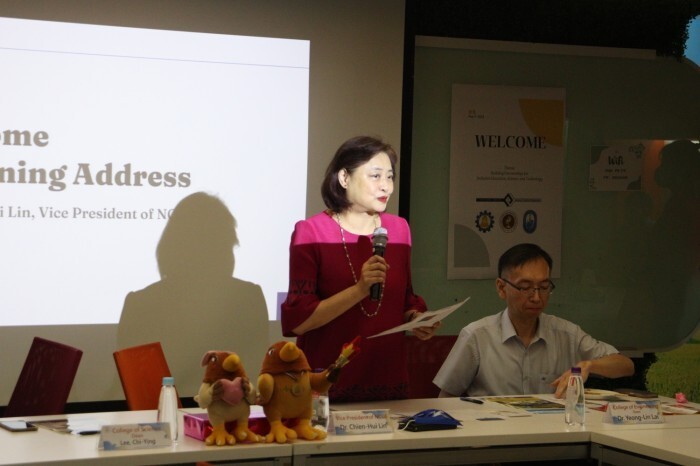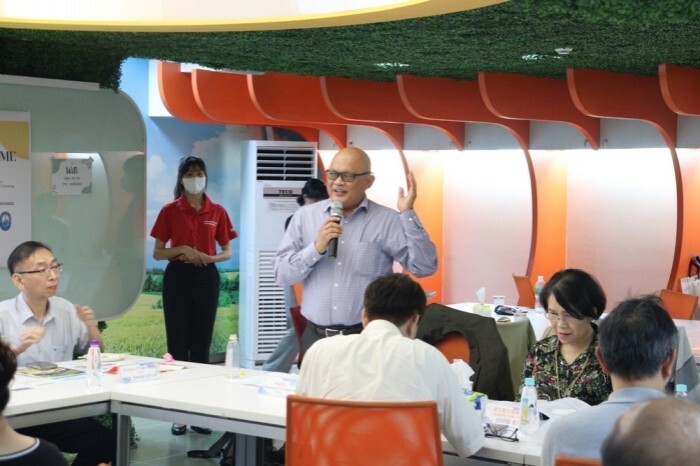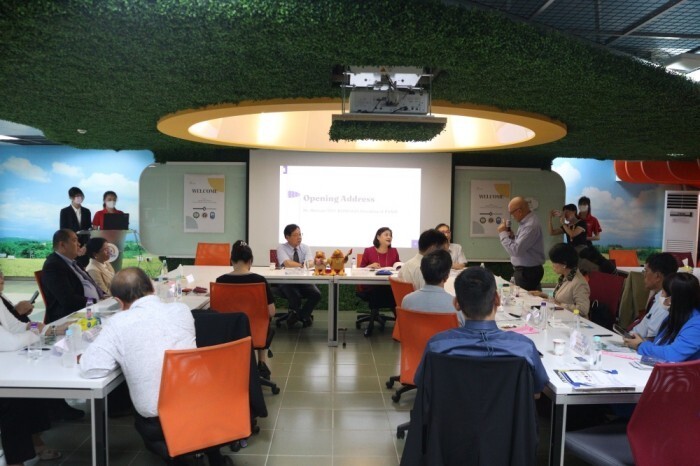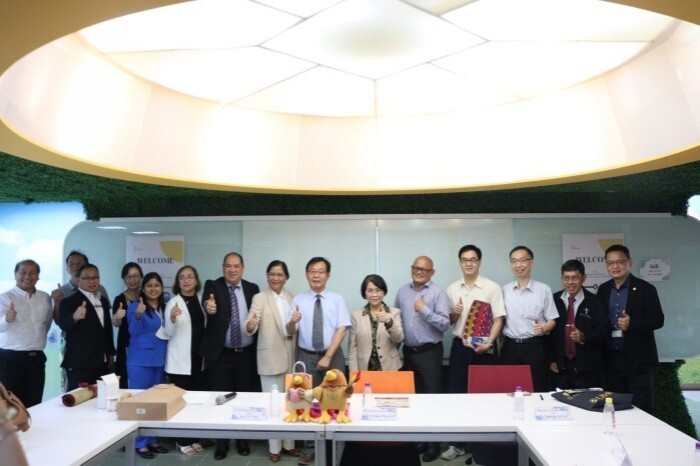PASSE Visits NCUE, Holding Potential to Bring Quality Filipino Students to NCUE




PASSE Visits NCUE, Holding Potential to Bring Quality Filipino Students to NCUE
The President of the Philippines-American Academy of Science and Engineering (PAASE), Dr. Mariano Sto. Domingo, recently led a delegation to visit NCUE. NCUE Vice President Chien-Hui Lin presided over the welcome meeting, where both sides discussed various topics, including the signing of a memorandum of understanding, Filipino students and scholars coming to NCUE to pursue degrees, student and faculty exchanges, and internship programs. NCUE expressed high expectations for bringing in quality talent through this collaboration.
Founded in 1980 in the U.S., PAASE is a non-profit organization composed of scientists and engineers of Philippine descent who have distinguished themselves in scholarly- and research-related activities. A primary objective of PAASE is to promote contacts and collaborations, including the training of students, among Filipino scientists the world over and to help the Philippines in her efforts to advance science and engineering, teaching and research in the country. Its research activities span diverse fields of study, such as physics, chemistry, biology, medicine, mathematics, computer science and engineering. The visiting delegation consisted of nine members from three universities in the Philippines, including one academician from the National Academy of Science and Technology (NAST).
During the meeting, Vice President Lin extended a warm welcome to the guests, and emphasized NCUE's active efforts in strengthening academic exchanges with New Southbound countries, aiming to promote talent cultivation and sharing. This meeting was seen as an opportunity for mutual understanding. Dr. Mariano Sto. Domingo stated that higher education in the Philippines is currently at a crucial moment in its national development, and this visit to Taiwan aims to achieve three goals: collaboration in research with NCUE, student and faculty exchanges, and the establishment of capacity-building programs. These objectives are intended to enhance Filipino students' interest in science and engineering and encourage them to study abroad, benefiting both Taiwan and the Philippines.
There were in-depth discussions on topics such as international master's degree programs in the College of Science and the College of Engineering, Ministry of Education special projects, student and faculty exchanges, Filipino university faculty coming to the school to pursue doctoral degrees, and education professional students coming to Taiwan for internships. If these collaborative projects materialize, it is expected that they will not only bring in more outstanding Filipino students, alleviate the impact of a declining birthrate, and provide a substantial talent pool for the university's academic research and related industries but also strengthen the connection between Taiwan and the Philippines.
Faculty members from the university who attended the meeting included Dean Chi-Ying Lee of the College of Science, Dean Yung-Ling Lai of the College of Engineering, Professor Ming-Hua Ho of the International Master's Program in Engineering, and Professor Yi-Sheng Hong of the Department of Chemistry and concurrently the Division Head of Student Exchange at the International Office, among others.
The President of the Philippines-American Academy of Science and Engineering (PAASE), Dr. Mariano Sto. Domingo, recently led a delegation to visit NCUE. NCUE Vice President Chien-Hui Lin presided over the welcome meeting, where both sides discussed various topics, including the signing of a memorandum of understanding, Filipino students and scholars coming to NCUE to pursue degrees, student and faculty exchanges, and internship programs. NCUE expressed high expectations for bringing in quality talent through this collaboration.
Founded in 1980 in the U.S., PAASE is a non-profit organization composed of scientists and engineers of Philippine descent who have distinguished themselves in scholarly- and research-related activities. A primary objective of PAASE is to promote contacts and collaborations, including the training of students, among Filipino scientists the world over and to help the Philippines in her efforts to advance science and engineering, teaching and research in the country. Its research activities span diverse fields of study, such as physics, chemistry, biology, medicine, mathematics, computer science and engineering. The visiting delegation consisted of nine members from three universities in the Philippines, including one academician from the National Academy of Science and Technology (NAST).
During the meeting, Vice President Lin extended a warm welcome to the guests, and emphasized NCUE's active efforts in strengthening academic exchanges with New Southbound countries, aiming to promote talent cultivation and sharing. This meeting was seen as an opportunity for mutual understanding. Dr. Mariano Sto. Domingo stated that higher education in the Philippines is currently at a crucial moment in its national development, and this visit to Taiwan aims to achieve three goals: collaboration in research with NCUE, student and faculty exchanges, and the establishment of capacity-building programs. These objectives are intended to enhance Filipino students' interest in science and engineering and encourage them to study abroad, benefiting both Taiwan and the Philippines.
There were in-depth discussions on topics such as international master's degree programs in the College of Science and the College of Engineering, Ministry of Education special projects, student and faculty exchanges, Filipino university faculty coming to the school to pursue doctoral degrees, and education professional students coming to Taiwan for internships. If these collaborative projects materialize, it is expected that they will not only bring in more outstanding Filipino students, alleviate the impact of a declining birthrate, and provide a substantial talent pool for the university's academic research and related industries but also strengthen the connection between Taiwan and the Philippines.
Faculty members from the university who attended the meeting included Dean Chi-Ying Lee of the College of Science, Dean Yung-Ling Lai of the College of Engineering, Professor Ming-Hua Ho of the International Master's Program in Engineering, and Professor Yi-Sheng Hong of the Department of Chemistry and concurrently the Division Head of Student Exchange at the International Office, among others.
Click Num:
Share




.png)